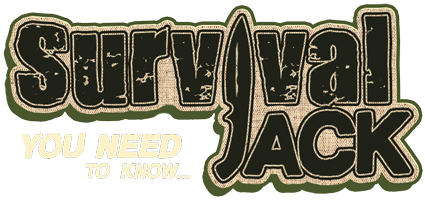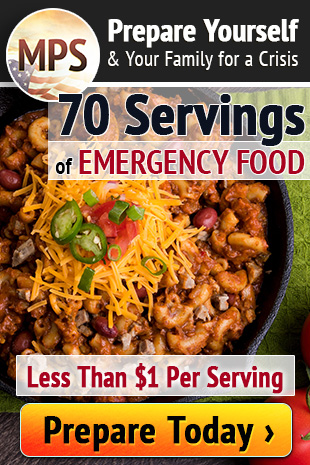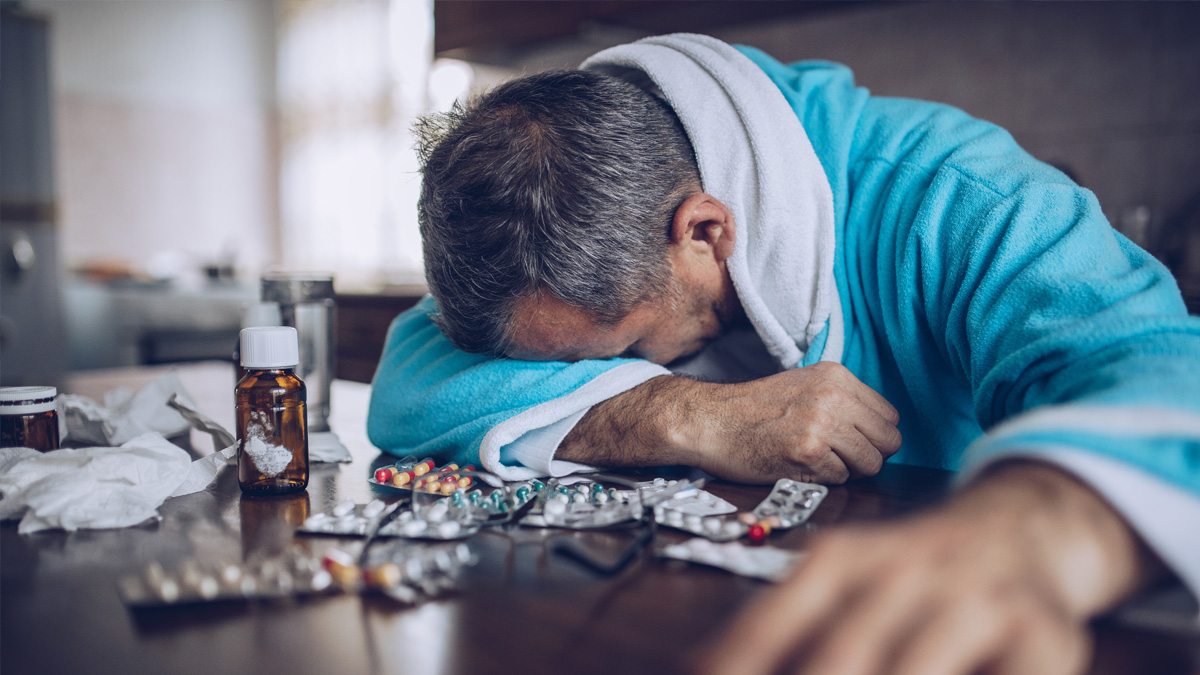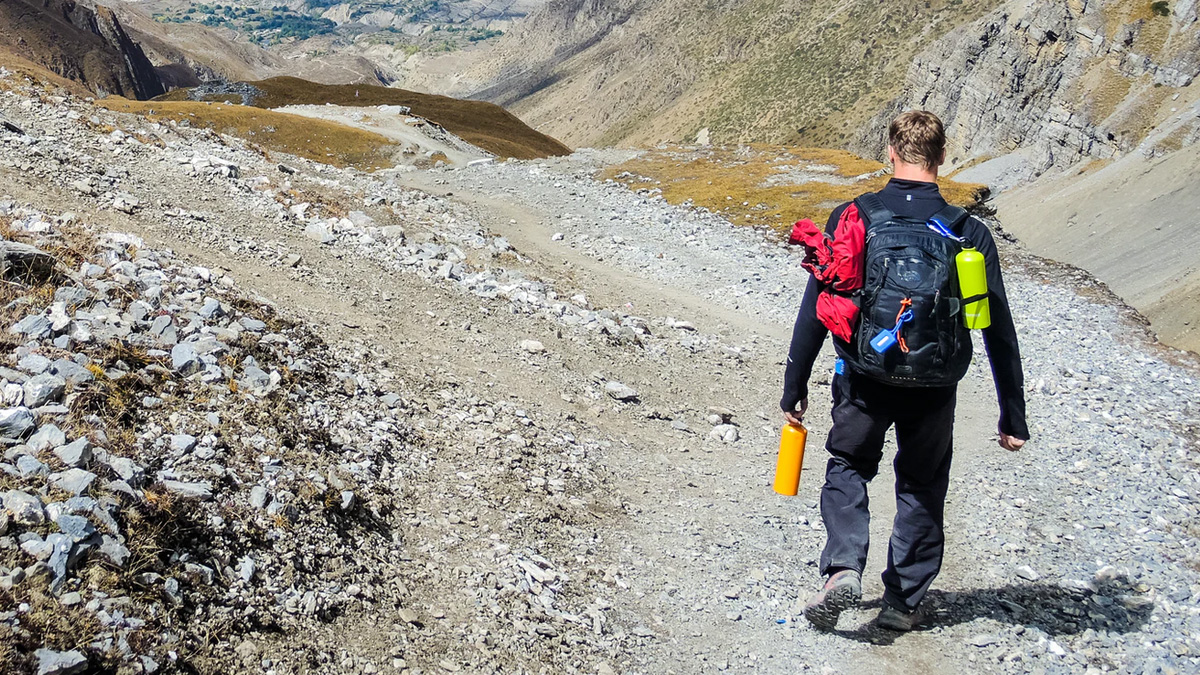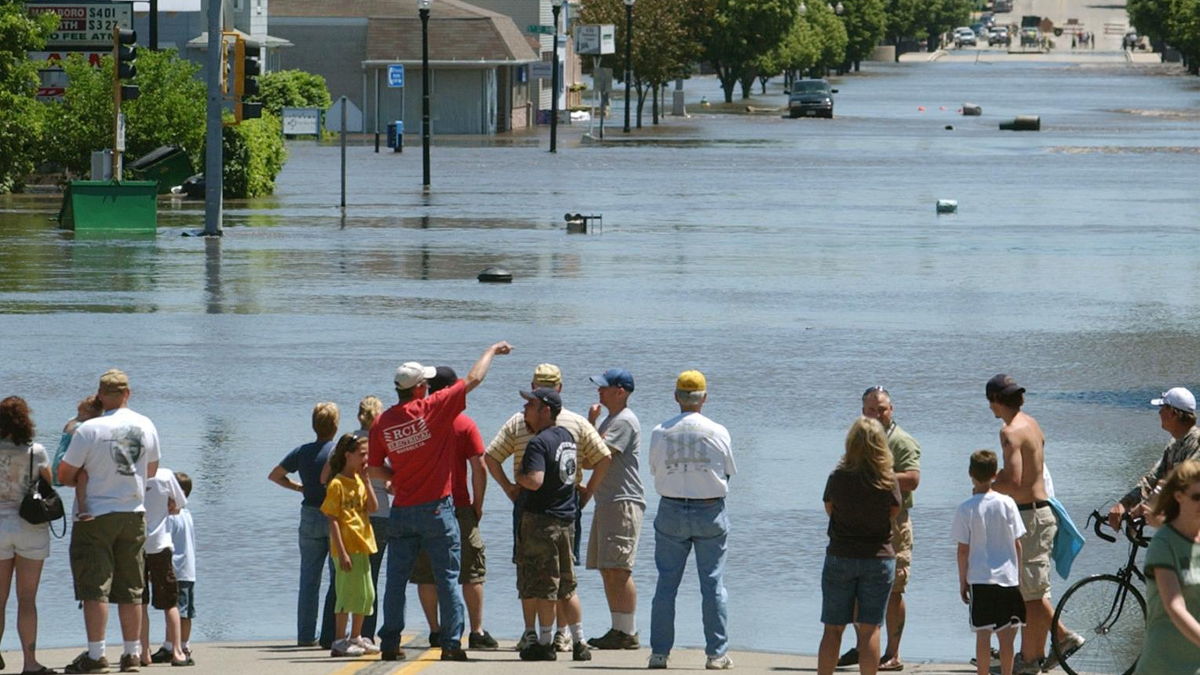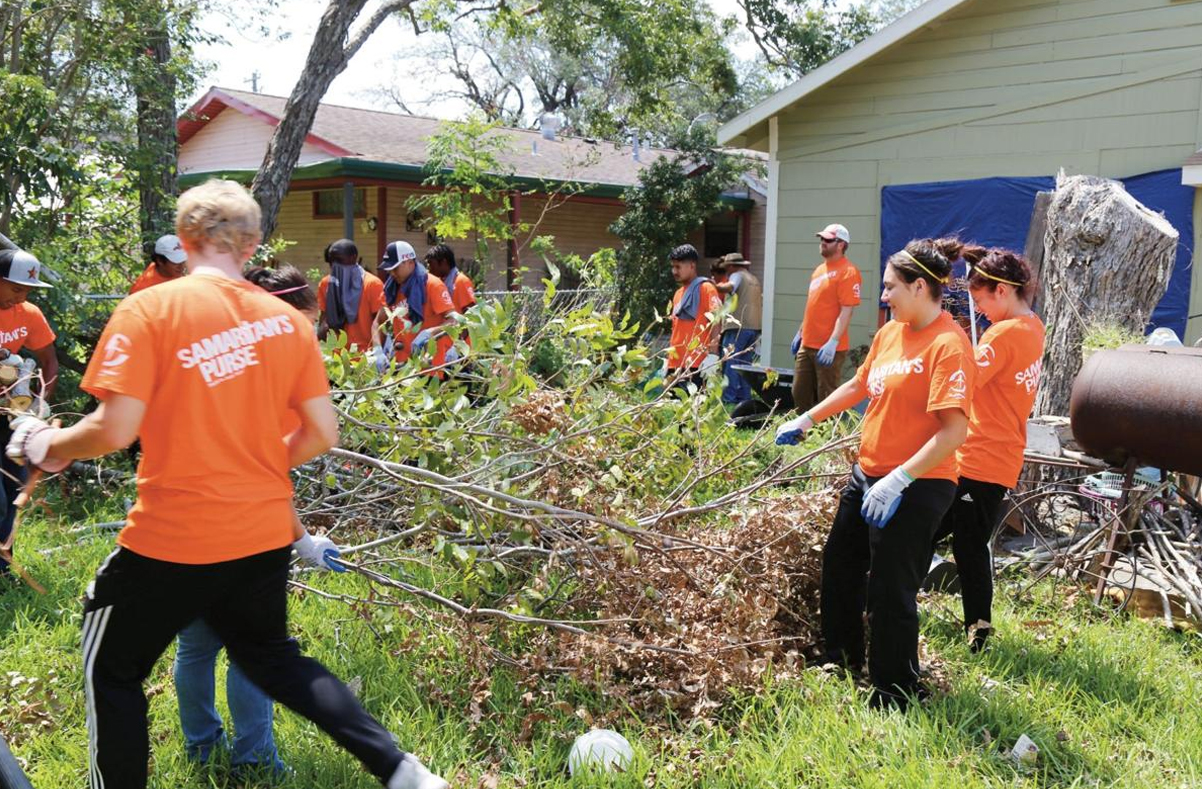on
Are you and your family prepared to stay home for weeks or months at a time if a severe pandemic swept the globe? Most people aren’t ready to weather such an emergency. Yet many experts agree that we should be preparing for such an event.
Pandemics have been part of human history for thousands of years, and it stands to reason that one will happen again. TIME reports that microbes evolve about 40 million times faster than humans; eventually, one tiny virus could evolve in a way that spreads easily and completely devastates our immune systems.
Preparing for a pandemic is similar to preparing for other emergencies like a long-term power outage or natural disaster, but there are some key differences. Let’s take a look at what you can do, on a budget, to prepare your family for a pandemic.
According to Harvard Business Review, current models suggest that a pandemic might sweep the globe in three distinct waves, each lasting from a few weeks up to three months. This means that you and your family should be able to survive on your own, at home, for a significant amount of time if you have to.
Preparing for a pandemic is an important part of disaster planning and requires many of the same steps. However, there are some additional precautions you need to take in order to keep your family safe.
1. Be Prepared to Treat at Home
Healthcare workers will face an ethical and moral dilemma during a pandemic. Do they report to work and help care for the sick, putting themselves (and their families) at risk for infection, or do they stay home and help ensure their loved ones don’t fall ill?
According to a survey conducted by CIDRAP, almost half of healthcare workers admit that they would stay home during a pandemic. Another study, published in the journal BMC Public Health, found that 28% of healthcare professionals agree it would be acceptable to abandon their workplace during a pandemic in order to protect themselves and their families.
Even if only 10% of healthcare professionals opt to stay home during a pandemic, and another 10% fall ill themselves, that’s still a conservative 20% reduction in the medical labor force at a time when hospitals and doctor’s offices will be flooded with patients. There’s a chance that some patients won’t be able to get in to see a doctor at all.
Medication could also be hard to obtain. According to a 2006 study conducted by the Harvard School of Public Health, 43% of people believe they would have difficulty obtaining medicine should they have to stay home during an epidemic. During the 2017-2018 flu season, which turned out to be only slightly more severe than normal, the LA Times reported that pharmacies in California had medicine shortages.
Supply disruption is also a real possibility during a pandemic. In order to save on storage space and costs, most hospitals and pharmacies only keep enough medicine on hand for a few days, depending on daily deliveries to keep their supplies stocked. In addition, many life-saving medicines are now made in Asia. If a pandemic occurs, there’s a good chance that deliveries will be interrupted or halted entirely. Stores are also likely to sell out of over-the-counter medication quickly.
Stocking up now means you’ll already have what you need should a pandemic occur, and you’ll be less likely to have to leave the house for supplies, potentially exposing yourself to the virus. Consider stocking up on over-the-counter medication like:
- Pain relievers
- Cough and cold medicine
- Stomach medicine, including anti-diarrheal
- Vitamins
Over-the-counter medication can be expensive, especially when you’re trying to buy it in large amounts. To save money, look for sales and coupons and only buy what you need when the price is discounted. Make sure to keep your medication rotated so it doesn’t expire by checking expiration dates every few months.
You should also have a well-stocked first-aid kit in your home and know how to administer emergency first aid like stopping traumatic bleeding and administering CPR. Remember, during a pandemic, hospitals will be overcrowded, and an ambulance might not be available to take you or your family member to a hospital should you break a leg or have a heart attack, so you should be prepared to deal with these emergencies yourself. Knowing first aid is an important survival skill and could save the life of someone in your family.
Also, consider stocking up on face respirators so you’re protected if you do have to go out in public. The U.S. Food and Drug Administration recommends using an N95 respirator during public health emergencies, which you can purchase inexpensively on Amazon. The “N95” designation means that the respirator blocks 95% of tiny (0.3-micron) airborne particles.
Keep in mind that a good fit is important for adequate protection, and N95 respirators are designed for adults, not children. You will need to purchase child-sized respirators (which you can also find on Amazon) to protect your children during an outbreak.
Don’t forget eye protection, if you are caring for someone that is coughing, make sure you wear eye protection so that airborne droplets do not enter through your eyes. You need to stay healthy, especially if you are the sole caregiver and everyone else in your family is sick.
2. Plan for a Sick Room
The CDC recommends that during a pandemic, the sick should stay in a dedicated “sick room” and use a dedicated bathroom that no one else will use.
Start thinking now about which room in your home would work best as a sick room. If the room doesn’t have a door, have an extra plastic shower curtain on hand to partition it from the rest of the house. If someone does fall ill, quarantine them to the sick room and clean the room daily with a bleach solution of 1:10 bleach to water. Spray it on a surface, let it set for 2 minutes and then wipe dry. It is recommended that you wear household gloves to protect your hands and to wear clothing you don’t mind getting bleach splatters on.
3. Stock Up On Food, Water, & Household Supplies
The Department of Homeland Security recommends that families have at least a two-week supply of water and food to prepare for a pandemic. Supplies for a month or more are even better. Typically, you’ll need one gallon of water per person, per day, for drinking and hygiene.
Building a long-term food storage pantry means you won’t have to put yourself at risk of infection by going to the store, and you’ll be insulated from the food shortages that could very well occur during the panic of a pandemic.
So, what should you stock up on? Focus on shelf-stable foods that your family already eats and enjoys. This might include food you would find at MyPatriotSupply.com that you just need to add boiling water too. These pouches can be stored in totes and shoved under a bed or stacked in a corner of a closet. The fruit makes for a very healthy snack that most children love even when not feeling well.
You should also stock up on the supplies you’ll need to stay healthy at home. These items include:
- Hand soap and sanitizer
- Bleach or other surface cleaners
- Toilet paper
- Kleenex
- Prescription medication
- Fluids with electrolytes (like Gatorade and Pedialyte)
- Garbage bags (for medical waste disposal)
- Plastic gloves
- Diapers (for very small children)
Again, it can get expensive if you hit the stores to stock up on all of these items at once. Instead, purchase items slowly, over time, and only when they go on sale or you have a coupon.
Don’t forget to stock up on food and supplies for your pets too.
Although the chance of an outage is remote, it is possible that utilities and power supplies might be interrupted or stop entirely if a large portion of the working population falls ill or has to stay home to care for sick family members. Have enough supplies to survive without power for several days or weeks, including flashlights, lanterns, a hand-crank or solar-powered radio, and the ability to cook food without electricity, such as with a solar oven cooker.
4. Make an Emergency Plan
If a pandemic is suspected, the CDC reports that it’s likely schools will close early to prevent the spread of the disease – and they could be closed for weeks or even months. How would you care for your children if you were still expected to report for work? Under what circumstances would you stop attending work in order to protect yourself and your family from illness? Do you have enough in savings to stop working for a period of time if necessary?
It’s important to ask yourself these questions before a pandemic occurs. With a plan in place, you won’t have to worry about what you’re going to do if the worst should happen.
Start thinking now about who might be able to care for your children during such an emergency. Consider other family members, friends, neighbors, or members of the community. Talk to these people beforehand to find out how you could help each other during a pandemic.
Next, find out how your company might handle work absences during a pandemic. Do you have the ability to telecommute? If not, what would you need to get started?
Last, make sure you have enough in your emergency fund to survive for a period of time without a regular income.
5. Explore Natural & Herbal Medicines
While it’s important to have over-the-counter medications on hand to treat symptoms, it’s just as important to have an herbal medicine kit in your home to complement commercial medicine. Some herbal remedies are a great frugal flu treatment and can even be more effective than store-bought medicine.
Herbs such as elderberry and oregano oil are very effective in preventing illness, as well as lessening the severity and length of an illness once it starts. They’re also great natural remedies to keep your kids healthy during a prolonged illness.
6. Practice Prevention Now
Several simple actions can dramatically reduce your risk of catching (and spreading) an infectious disease. The CDC recommends that you:
Wash your hands for at least 20 seconds with hot soapy water whenever you come back from any public place or have been around anyone who is sick.
Frequent washing of hands in the hottest water you can tolerate, with lots of soap is the easiest way to stay healthy and prevent the spread of disease. That is why hospitals now have signs telling patients if your doctor or nurse doesn’t wash their hands before examining you then ask them to do so.
When washing your hands start from the wrist and work your way down. Rinse and dry your hands in the same way so that what you are rinsing off isn’t just being moved higher on your hands.
Keep your hands away from your face, particularly your eyes, nose, and mouth.
Cover your coughs and sneezes with a tissue, not your hand.
Stay home when you’re sick, and don’t go out until you’ve been fever-free for 24 hours without the use of fever-reducing medications.
Clean frequently touched surfaces and objects with either Lysol type wipes of a 1:10 bleach solution.
Start practicing these actions with your family today, especially if you have younger children. If you get into these habits now, they’ll be second-nature to you should a pandemic occur, reducing the risk that someone in your family will get sick.
Get access to premium content and more!

